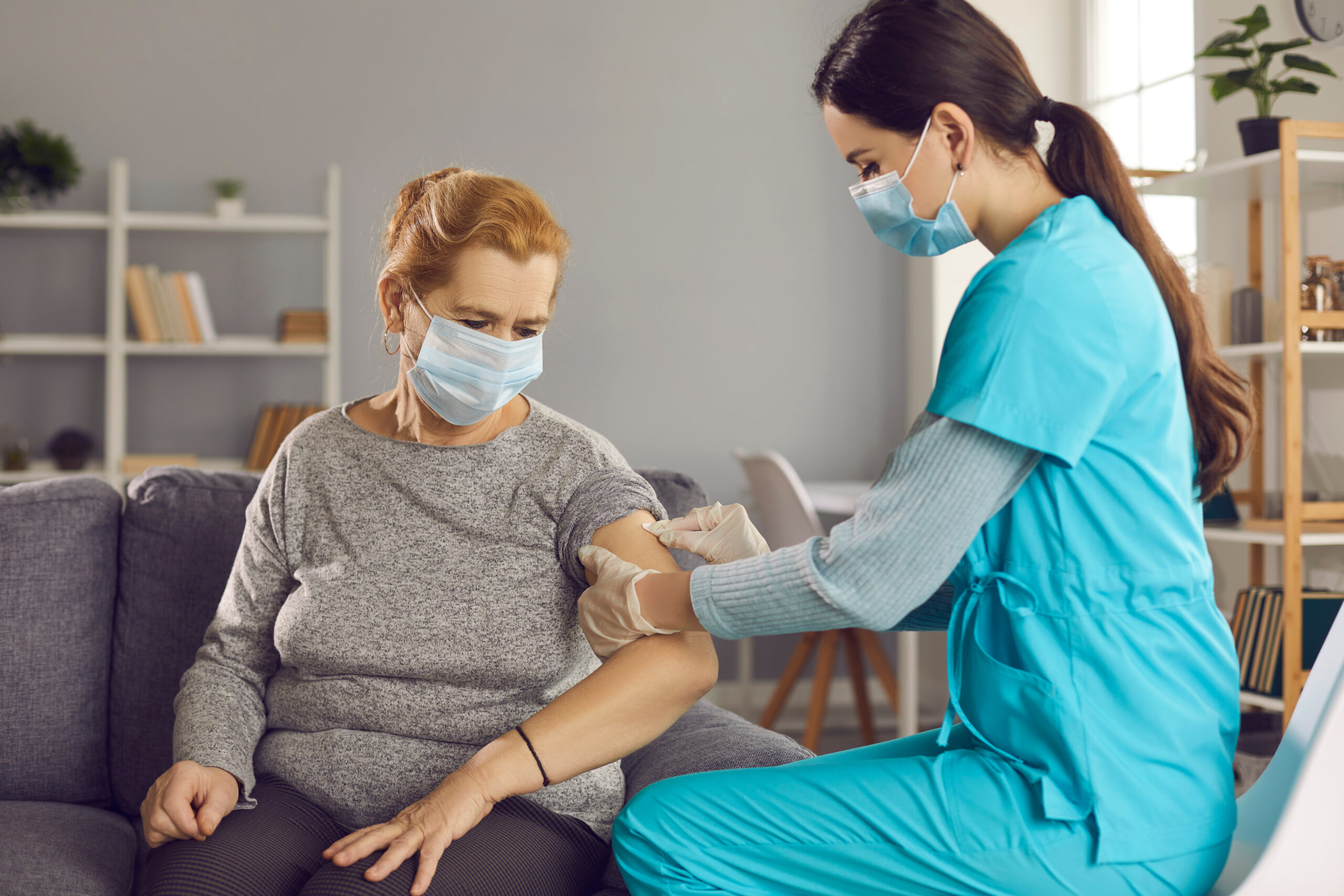
When it comes to infectious diseases there is a very pertinent adage: no one is safe until everyone is safe.
This is especially so in the matter of the coronavirus pandemic, in which mass vaccination is an essential part of the public health response.
Yet despite a massive roll-out through hubs, general practices and pharmacies, some members of our community face significant challenges in accessing vaccines.
These are people who cannot safely or comfortably leave their place of residence. This might be because of disability, frailty, or mental health challenges. Collectively, they comprise one of the most vulnerable population cohorts in our community.
To address this, in November 2021 North Western Melbourne, South Eastern Melbourne and Eastern Melbourne Primary Health Networks (NWMPHN, SEMPHN, EMPHN) partnered to deliver a vaccination program to homebound clients within their specific regions. This was done under the auspices of an Australian Government initiative, called the Vulnerable Peoples Homebound Vaccination Program (VPHVP).
To roll the program out within its own catchment, NWMPHN commissioned three providers – Hume Medical Centre, Onsite Doctor and Maidstone Pharmacy.
The brief was to seek permission to visit homebound residents, and administer, over time, two primary COVID-19 vaccinations, followed by a booster. Where appropriate, housemates and carers are also vaccinated.
The residents are initially identified by GPs, disability liaison officers in public hospitals, or welfare workers at local councils. Details from an online form are passed to the NWMPHN Vaccine Preventable Conditions team, which then contacts the appropriate vaccination provider. A home visit is then arranged.
In addition, the NWMPHN team has linked up with the Western Public Health Unit to identify residential aged care facilities with low COVID-19 booster dose rates. The providers then offer in-house vaccination clinics for residents and staff.
The VPHVP is set to wind up at the end of May 2022, albeit with some remaining boosters being delivered during June.
Interim results show that the program has been very successful.
Up until March 8, 334 vaccinations were delivered to vulnerable people in their homes. In-house clinics were organised in 22 aged care facilities between January and March, resulting in 226 residents, 76 staff and 2 family members being vaccinated.
Of course, in the overall context of Australia’s vaccination program, the several hundred vaccinations delivered to housebound residents comprise a minuscule percentage of the almost 56 million doses so far delivered.
But that’s not the point. Our vulnerable community members deserve to be kept safe – so that they, in turn, can help keep us all safe.




